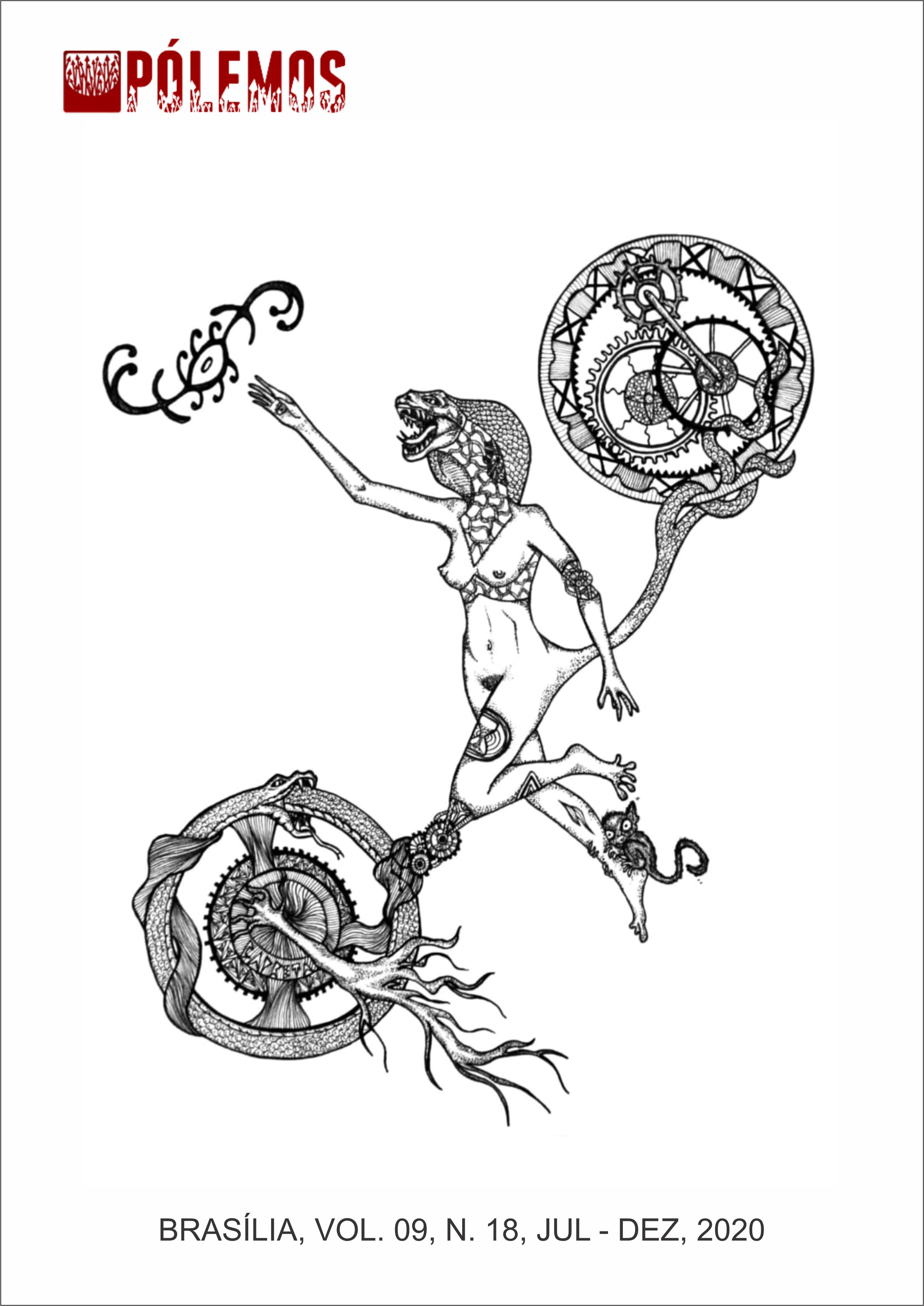REFLEXIVITY BETWEEN SELF CONSCIOUSNESS AND INTERSUBJECTIVE RELATIONS AS A CENTRAL AXIS FOR UNDERSTANDING HUMAN BEING
an analysis from Hegel's dialectics of recognition
DOI:
https://doi.org/10.26512/pl.v9i18.29534Keywords:
Self-consciousness. Intersubjectivity. Recognition. Languange. Human-being.Abstract
It seeks to evidenciate the existing link between the self-consciousness and the intersubjective relations as the main definer element of the human character in its main outlines. With support on the Dialetics of Recognition by Hegel, subsidies are sought to indicate the phenomenon of acquisition of self-consciousness as a product of an impulse that concretizes itself in the relational encounter between subjects, inside a dynamics that originates itself in the quest of recognition by the individual subject (self). The consequences attained by the relational process will create, by means of languange, conditions for an enourmous cognitive development by the human being, a product of the development of new perceptions and thougths. An unique feature that is fundamental for the comprehension of human being’s actions and behaviors along their existence, both individualy as colectively.
Downloads
References
BAKER, Lynne. Naturalism and the first-person perspective. New York: Oxford University Press, 2013.
DIAS, Bernardo Enes. The return from otherness: Hegel’s paradox of self-consciousness in the “Phenomenology of Spirit”. In: OTHERNESS: Essays and Studies. 4. 1. Disponível em:
<http://www.otherness.dk/fileadmin/www.othernessandthearts.org/Publications/Journal_Otherness/Otherness__Essays_and_Studies_4.1/Hegel_Otherness.pdf>. Acesso em 16 jul. 2015.
HEGEL, Georg Wilhelm Friedrich. Fenomenologia do Espírito. Tradução: Paulo Meneses. 5ª. ed. Petrópolis: Vozes, 2008.
____________________________________. Enciclopédia das ciências filosóficas em compêndio: 1830. Vol. III: A Filosofia do Espírito. Tradução: Paulo Meneses. São Paulo: Loyola, 1995.
KANT, Immanuel. Crítica da Razão Pura. Tradução: Manuela Pinto e Alexandre Morujão. 5ª ed. Lisboa: Fundação Calouste Gulbenkian, 2001.
PIPPIN, Robert B. Hegel on self-consiousness: desire and death in the “Phenomenology of Spirit”. New Jersey: Princeton University Press, 2011.
VAZ, Henrique Cláudio de Lima. Antropologia filosófica II. São Paulo: Loyola, 1992.
Downloads
Published
How to Cite
Issue
Section
License
Copyright (c) 2020 PÓLEMOS ”“ Revista de Estudantes de Filosofia da Universidade de Brasília

This work is licensed under a Creative Commons Attribution-NonCommercial-NoDerivatives 4.0 International License.
Todos os trabalhos que forem aceitos para publicação, após o devido processo avaliativo, serão publicados sob uma licença Creative Commons, na modalidade Attribution-NonCommercial-NoDerivatives 4.0 International Public License (CC BY-NC-ND 4.0). Esta licença permite que qualquer pessoa copie e distribua a obra total e derivadas criadas a partir dela, desde que seja dado crédito (atribuição) ao autor / Ã autora / aos autores / às autoras.


